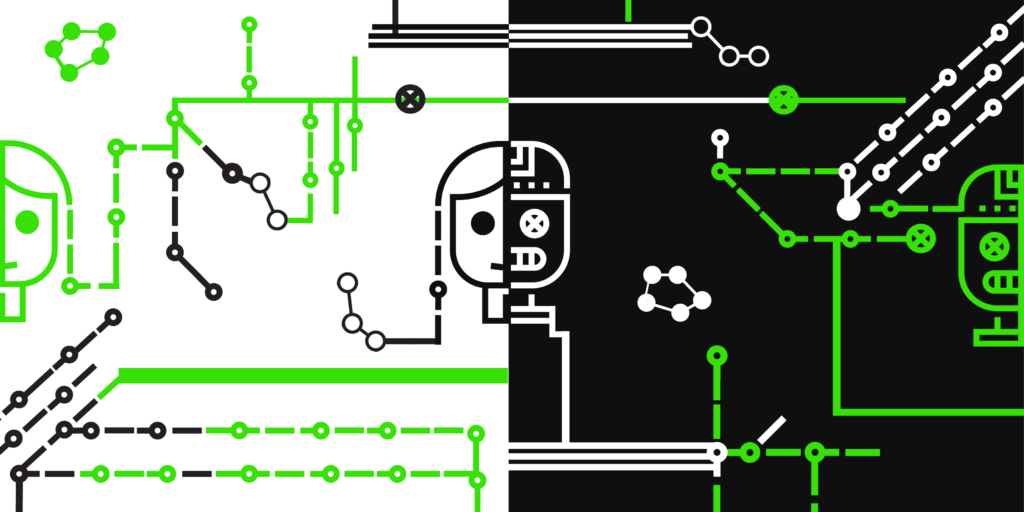Last week, Google revised its ethical guidelines that prevented its AI systems from being used for surveillance and developing weapons. These changes highlight the urgent need for robust global AI governance and accountability frameworks, as their absence is detrimental to fundamental rights. As the Artificial Intelligence Action Summit concluded in Paris this week, it is crucial to evaluate the various announcements and promises made against the current state of AI international governance, which is currently dominated by calls for deregulation and prioritizing “innovation at all costs.”
Access Now acknowledges the leadership of the French government for convening this Summit at a crucial time for democracy and digital rights, when institutions’ commitment to multi-stakeholderism and to public interest AI is more important now than ever. The Statement on Inclusive and Sustainable Artificial Intelligence for People and the Planet and its stated commitment to advance AI systems centered on human rights, transparency, and environmental sustainability had the right intentions but was devoid of tangible action due to current geopolitics.
Additionally, Access Now welcomes the launch of the flagship initiative, Current AI, to build “public interest AI” – one that is geographically inclusive, transparent, and accountable. This initiative emphasizes the importance of civil society’s voice and diverse public engagement to counter the private sector monopolies over AI development. We call on this new funding initiative to support movements that can nurture the digital rights ecosystem and to prioritize issues that impact marginalized groups, and therefore recognizing their central role in building a long-lasting and rights-centered AI governance.
However, we regret that the Summit did not effectively center human rights or the voices of those who experience the harms of AI systems and its industry. Instead, the focus was centered on rapid innovation, while no meaningful space was given to ensure a holistic vision of the risks associated with the current AI industry or how to ensure safeguards are anchored in international human rights law. As a result, the Summit failed to meet the current consensus standards at the United Nations General Assembly (UNGA). Over the past 18 months, multiple UNGA resolutions have asserted that human rights and humanitarian law must apply to the entire AI lifecycle and prohibit AI systems that are “impossible to operate in compliance with international human rights law or that pose undue risks to the enjoyment of human rights, especially of those who are in vulnerable situations.”
The role of civil society in current global AI governance conversations remains ad-hoc and limited, and this Summit was no different. Current governance mechanisms risk mirroring the very concentration of power that characterizes the control of AI resources and capacity. While there were a few conversations centered on governance, the Summit outcomes lack concrete action in support of this. Civil society organizations, including Access Now, had called on the AI Summit to address the system of exploitation that the current AI governance framework risks reproducing, but the Summit recommendations fell short. Whilst Access Now and some of our partners – particularly within the EU – attended the main Summit, we lament that only a few civil society organizations were invited to attend the official event, especially those representing the global majority. The Summit seemingly prioritized platforming representatives from tech companies, which resulted in an unbalanced conversation and limited meaningful participation by civil society. We hope this is something future Summit organizers can rectify.
Finally, while sustainability was purported to be a major focus of the Summit, we were concerned by the lack of action and accountability. The launch of the Coalition for Sustainable AI as a non-binding instrument without financial commitment weakens it from the outset and demonstrates that institutions underplay the role that the AI industry plays in the current climate crisis. AI and its computing costs are directly responsible for the rapid and further degradation of the environment. It is now up to AI international governance models to level up to the challenge and take meaningful steps to ensure AI is not at odds with sustainability, starting from listening and implementing civil society demands for an AI industry that stays within planetary limits.
Access Now calls on all governments and international bodies to take meaningful action in response to the current AI challenge, and we will continue to advocate for the next AI Summit iterations to center human rights and to prioritize the voices of those most impacted by the current AI industry.
